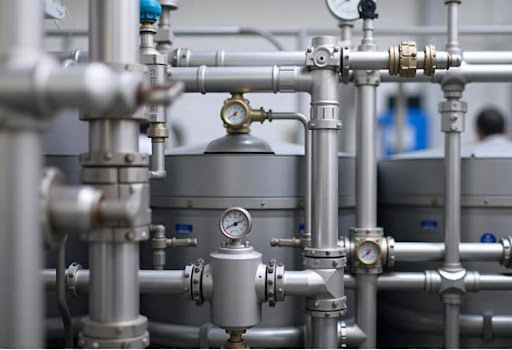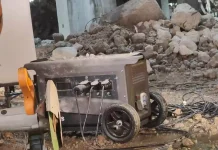It is important to make sure that, apart from meeting specifications and regulatory requirements, commercial boilers will run smoothly to prevent losses in efficiency and over-expenditure on energy consumption. Here, factors considered more closely related to boiler servicing are reviewed and good aspects are to be noted for every business in Kent spelled out clearly.
Proactive Maintenance: The Key to Longevity
The above entails. Isust preventative maintenance is understood as periodic checking and maintaining of facilities to avoid failures. For commercial boilers, this entails a systematic approach that includes:
Regular Inspections: Preventive measures such as conducting thorough & detailed evaluations of an enterprise’s environment with a view of anticipating any emerging problems are crucial. In this process, various problems such as leaks, corrosion, and wear and tear can be easily identified, and corrective measures are taken.
Cleaning Protocols: At some point, the surface of the boilers may be covered with soot or scale which reduces efficiency. If there is a ritual cleaning schedule, the performance will be improved, and fuel waste will be minimized.
Replacement of Worn Parts: Some of the boiler fittings like seals, valves, and gaskets have certain limited lives which they can run. It also reduces the chances of major breakdowns that may bring operations to a standstill besides incurring a lot of expenses in compensation.
Through effective implementation of proactive maintenance measures, the useful life of a boiler can be considerably lengthened while in the process cutting down maintenance expenses greatly.
What are the Compliance Standards and How Do They Affect Companies
The commercial boiler market is under certain legal and regulatory requirements to meet safe and environmental trading standards. These include:
Gas Safe Certification: Any boiler used for commercial purposes must meet gas safety requirements. Professional gas servicing can minimize the effects of dangerous mishaps on the installations, making them work properly.
Emissions Standards: Adherence to local and national emission standards is mandatory to maintain operational order. Failure to adhere can, however, lead to heavy fines, legal actions, and eroded company reputation.
Insurance and Liability: Most insurers have stipulated that annual examination and certification are conditions that must be met before claims regarding boiler failure or related mishaps may be honored. As compliance is achieved, companies reduce the likelihood of facing legal actions and, therefore, eradicate the probability of facing legal claims.
Compliance with these standards is not only useful to avoid fines but also to develop properly a safety culture at work.
Financial Benefits of Services Scheduling
Routine boiler maintenance may seem like a costly decision in the short run, but many experts concur that this is money well spent. Key financial benefits include:
Avoiding Unexpected Repair Costs: Since problems are dealt with early in their lifecycle they are cheaper to solve, instead of waiting until problems escalate to the extent that the business will be forced to undergo extremely expensive repair or replace their assets.
Lower Energy Bills: This involves a proper schedule check to determine the efficiency of boilers to run. Optimum systems use less fuel and therefore keep the expenditure on energy close to a minimal value.
Facilitating Planning and Budgeting: From the financial point of view, such maintenance intervals help with better planning of expenditures; For the businesses, it will be easier to prepare financially for regular maintenance and thus avoid a situation where they will have to incur large amounts as charges for the maintenance.
Such a preventive measure just changes the geographical outlook, making the maintenance cost-oriented of planned expenses rather than ad hoc ones, healthy for business organizations.
Boiler Monitoring and the Use Of Technology
Technological advancements have severely affected commercial boiler servicing in a very significant way. Some advancements that are transforming the industry include:
Smart Boiler Systems: Due to machine learning and enhanced control, advanced boilers detect other operational settings and modify them accordingly to improve efficiency and performance. The connected systems assist with supervision and predictive maintenance to assist with interventional requirements.
Remote Monitoring Solutions: Modern boiler monitoring technologies include remote instrumental approaches that may send alerts for potential problems while notifying operators of any abnormalities in boiler performance that lead to timely solutions and less time wasted on unscheduled downtimes and repairs.
Environmental Controls: Environmental technologies enable organizations to measure pollutant releases and to conform to legal environmental standards. It also becomes useful in compliance with the law and improves the image of the company as an environmentally friendly firm.
Such changes should therefore be embraced in organizations that want to maintain their market position and cut on costs of operation.
Conclusion
Successful and regular maintenance and compliance with the laws that bind commercial boiler service are not mere recommendations or guidelines but rather a necessity for maintaining efficient, safe, and affordable heating systems. Kent-based companies need to understand and commit to boiler maintenance to save on operational costs through maximum efficiency while adhering to regulatory requirements in the utilization of technology.
The appropriate management of boiler systems can result in great returns in the functionality and the run costs of organizations thus ensuring survival in today’s market. By recognizing the importance of these factors in improving the operational resilience and sustainability of a business firm and through such insights companies can make better decisions that improve on the factors.






